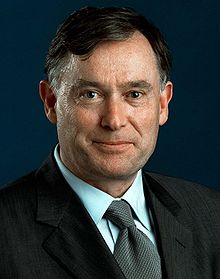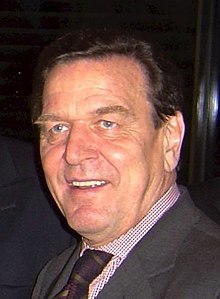German president dissolves parliament; elections in September
Thursday, July 21, 2005

German president Horst Köhler announced today that he has dissolved the Bundestag after a motion of confidence by chancellor Gerhard Schröder deliberately failed on July 1st. He set the 18th of September 2005 as the date for early elections to the Bundestag.
In a televised address Köhler stated that Germany is in a serious economic situation and that the country needs a stable government. He recalled the previous occasions when the Bundestag was dissolved and agreed with the chancellor that the loss of confidence was genuine and urged the citizens to vote.
The Speaker of the Bundestag, Wolfgang Thierse, welcomed the decision and urged the parties to conduct fair campaigns.
Chancellor Schröder also paid his respect to Köhler, calling his decision confident and again expressed that he intents to resume the good way on which Germany is heading under his leadership.
The Chair of the conservative Christian Democrats (CDU) and her party's candidate for chancellor, Angela Merkel, welcomed the call for early elections and wants to get Germany on the right track if her party gets to power in September.

The dissolving is the result of a long political muddle that began on May 22th when Schröder's Social Democrats (SPD) lost the most populous state of Germany, North Rhine-Westphalia, to the CDU, the biggest opposition party. Minutes after the early projections were in, SPD chair Franz Müntefering announced that his party would seek re-election in fall of 2005. However, the Basic Law of Germany does not permit the self-dissolving of the Bundestag. The only way to achieve early elections is when the chancellor loses a motion of confidence. All major parties, including the opposition, support the call for early election. Polls also indicate that 75% of the population support going to the ballots in September. However, some MP's, most notably Werner Schulz of SPD's coalition partner, The Greens, say that the procedure was unconstitutional because the loss of confidence was orchestrated. They announced that they will sue against the dissolving before the Constitutional Court of Germany.
- Schröder loses motion of confidence
- German president dissolves parliament; elections in September
- German Constitutional Court green-lights early elections call
- TV debate between German chancellor Schröder and opposition leader Merkel held
- Death of candidate will delay final results for German federal election by weeks
- One week before German federal election, the race is wide-open again
Germany has been struggling with high unemployment for several years and the reforms Schröder introduced were criticized as being neo-liberalistic by unions and also by members of his own party.
Current polls see the CDU at 44%, while the SPD can only expect 27%. The liberal FDP, CDU's possible coalition partner, can expect 7%, The Greens 8% and the Party of the Left (formerly PDS) 11%.
The governing SPD-Green coalition is faced with an overwhelming opposition majority in the Bundesrat, the upper chamber, that is able to block most bills. Schröder claims that the CDU is engaging in a policy of blockade rendering him unable to make laws and implement policy changes while Angela Merkel, says that Schröder's government is simply incapable to take action.
Sources
[edit]- Horst Köhler. "Televison address by the german president (in german)" — Bundespräsidialamt, July 21, 2005
- "Köhler Dissolves Parliament; Calls Early Elections" — Deutsche Welle, July 21, 2005
- "German president backs early poll" — BBC News, July 21, 2005
- "Köhler entscheidet sich für Neuwahlen" — Spiegel Online, July 21, 2005
- "Union verliert weiter in der Wählergunst" — AFP, July 20, 2005
|
| The text of this article has been released into the public domain. In the event that this is not legally possible, this article may be used for any purpose, without any condition, unless such conditions are required by law. This applies worldwide. Copyright terms on images, however, may vary, so please check individual image pages prior to duplication. Please note that this only applies to Wikinews content created prior to September 25, 2005. All content created after that date is released under a Creative Commons license which is mentioned at the bottom of each article. This is currently the Creative Commons Attribution 2.5 License. |

